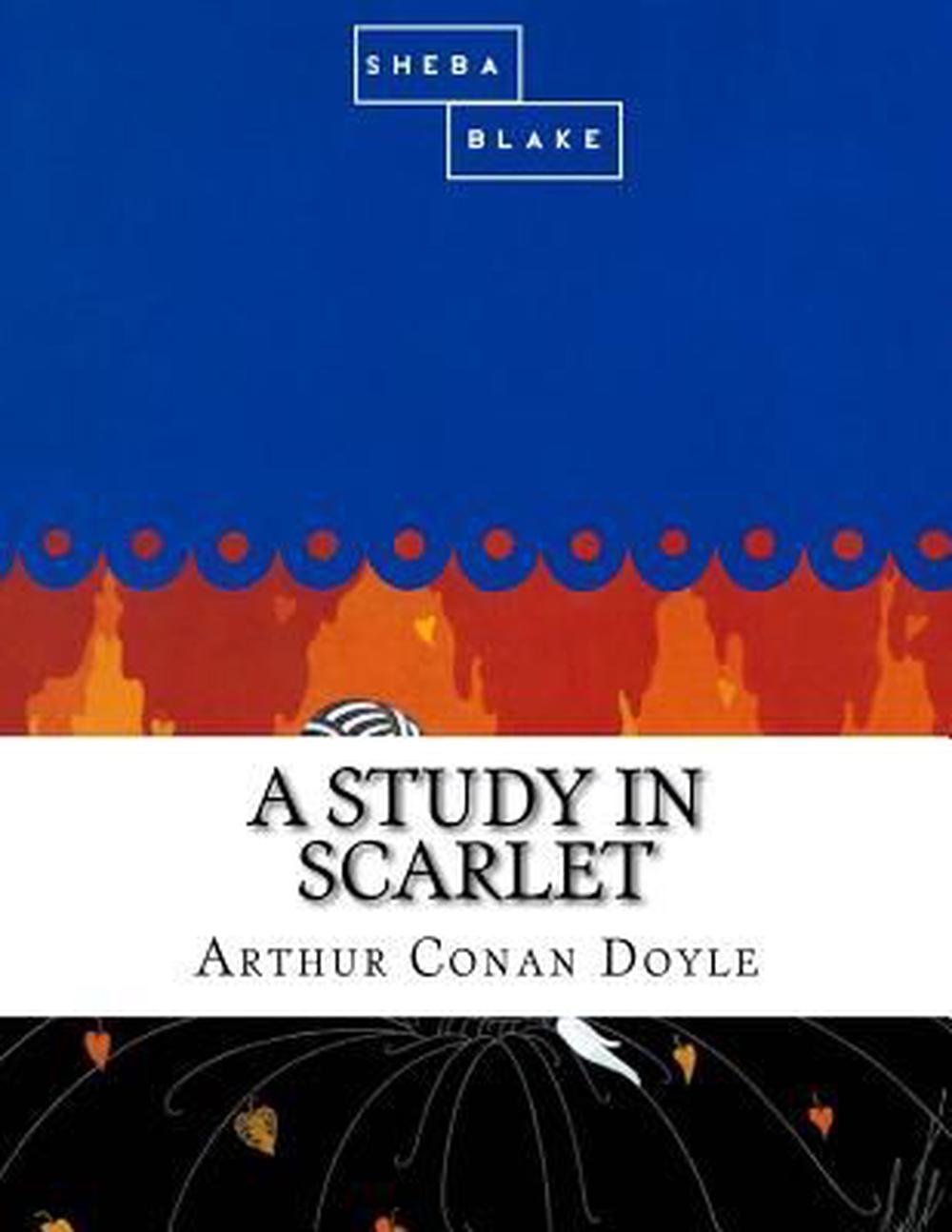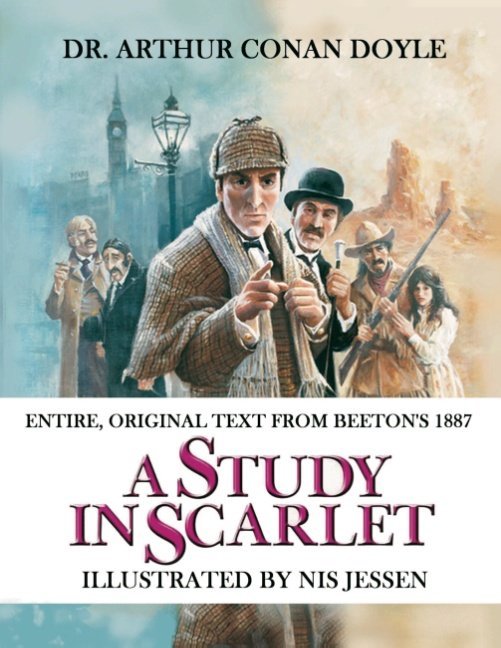

Like other episodes in the 60's BBC Sherlocks series, A Study in Scarlet is a mixture of video and film, but most of the story developments take place on dressed sets. A major piece which might assist Holmes in his deductions are little white pills found at the scene of both crimes.this is where we see Holmes, the chemist(.using his little "laboratory" in his home)at work. When Stangerson himself is visited by a mysterious figure who enters his room unannounced, through the window, later found stabbed in bed, Arthur is cleared and Holmes, along with Watson, develop their case. Arthur is initially the number one suspect, but Holmes has other ideas. Run off by Madame's son, Arthur(Larry Dann), Drebber is found later poisoned. Enoch Drebber(Craig Hunter)is persistent in his desire to snatch away Alice Charpentier(Edina Ronay)from her mother Madame Charpentier(Dorothy Edwards), at the behest of his fellow American colleague, Joseph Stangerson(Ed Bishop). The second features two Americans in a heated verbal exchange over an attractive daughter whose mother allowed them to rent rooms in their boardinghouse. The first has someone removing a ring from the finger of a pretty dead woman presented in her casket(.the one who removes it clinches his fist tight informing us that he is very, very angry). Two important key scenes occur at the beginning of the episode before Holmes and Watson spring into action. Hence "A Study in Scarlet" where Scotland Yard are searching for the murderer of a lecherous American who is found poisoned in an abandoned hotel, a specific wedding ring near the crime scene along with the German term for revenge written in blood on a wall right above the body. With little crime in London, a frustratingly bored Sherlock Holmes(Cushing)so desperately needs a case to solve in order to keep his creative juices fresh. In all, a competent and workmanlike adaptation that doesn't really come alive until after the murderer is discovered. I liked what I have seen of his BBC predecessor Douglas Wilmer better. Peter Cushing is very competent as an impatient, twitchy Sherlock Holmes, but some reason he doesn't come off as anything more than adequate and slightly superficial in this role for me.

Nigel Stock is a fine actor but an unnecessarily dim-witted Watson (for instance, hiding his gun behind an awkwardly upheld newspaper), and not even a charmingly and amusingly dim-witted one in the Nigel Bruce mold. Unfortunately among the other actors performances tend towards the wooden, and the American accents are very variable. When the end does arrive, though, it is very impressive, with Larry Cross giving an excellent and very sympathetic performance as Jefferson Hope, and a well-conceived and effective final shot. Unusually for a 1968-era BBC production, scenes are very quick - accommodating all the material that must be fit in - and they left me wishing the pace could be more deliberate. The way they were done is workable and clever, with an opening sequence involving the victims that gives away a hint of backstory followed by the Holmes investigation, but it tends to turn the mystery, until the last few minutes arrives, into simple a puzzle without much human interest. As "A Study in Scarlet" was a novel-length piece of writing with long sections set in Utah without Holmes, and this is a forty-eight minute program, cuts were necessary. As such, the material dealing with the first meeting of Holmes and Watson can be discarded, although, oddly enough and perhaps as a remnant, Watson is still doubtful that Holmes can really make sweeping deductions from small details, and Holmes seems a little surprised that Watson is making notes on the case.
A study in scarlet review series#
Th BBC took on the challenge during its 1968 series of broadcasts with Peter Cushing as Holmes, and placed the story in between other Holmes mysteries in in the series rather than at the beginning. Though it is the first of the Sherlock Holmes stories, "A Study in Scarlet" is rarely adapted for production due to structural issues that make this difficult.


 0 kommentar(er)
0 kommentar(er)
